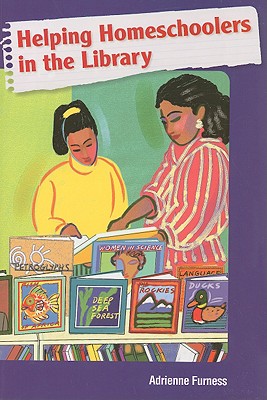This book really is perfect for my needs. The first part goes into a fair and comprehensive look at styles of homeschooling, some groups that have homeschooled in large numbers and a bit of the legal history of homeschooling. One of its first recommendations is that homeschooling guides- particularly the work of early homeschool advocate John Holt- be made available for parents as they try to find what will work best for their families.
The second part talks about what the libraries could offer that will make homeschooling families' lives easier. Recognizing that every family will have different needs, it suggests starting by offering a basic session on how homeschoolers can access information that already exists in the library. From there, make the families comfortable enough that they will discuss their existing goals and interests. After that- to the level that's feasible given library funding and possible grants- help build programs that will suit their needs. (In a well-stocked library, many of those programs will be more about "curating" existing materials than buying anything new.)
While most of the programs will be something that most children would want to take advantage of, Furness notes that they have a particular interest in the college admissions process given that many will have to create their own transcripts and diplomas. As necessary and possible, arranging for speakers to come in from nearby colleges would be hugely helpful. (The same can be said for financial aid.)
The book is interspersed with the real-life experiences of several homeschooling families and librarians. It also goes into detail about a handful of successful programs librarians created to serve the population. The most impressive one goes to the Johnsburg Homeschool Resource Center. In addition to detailing the offerings (accelerated reader books, math manipulatives and a miniature science lab among them), it also describes the funding process the library used to facilitate its creation.
This book inspired me to make suggestions to my librarians (and they already know enough about homeschoolers that they are asking for them anyway). I highly recommend it for any homeschooling parent looking to better utilize their library's resources.
 |
| Buy from Brookline Booksmith |

No comments:
Post a Comment